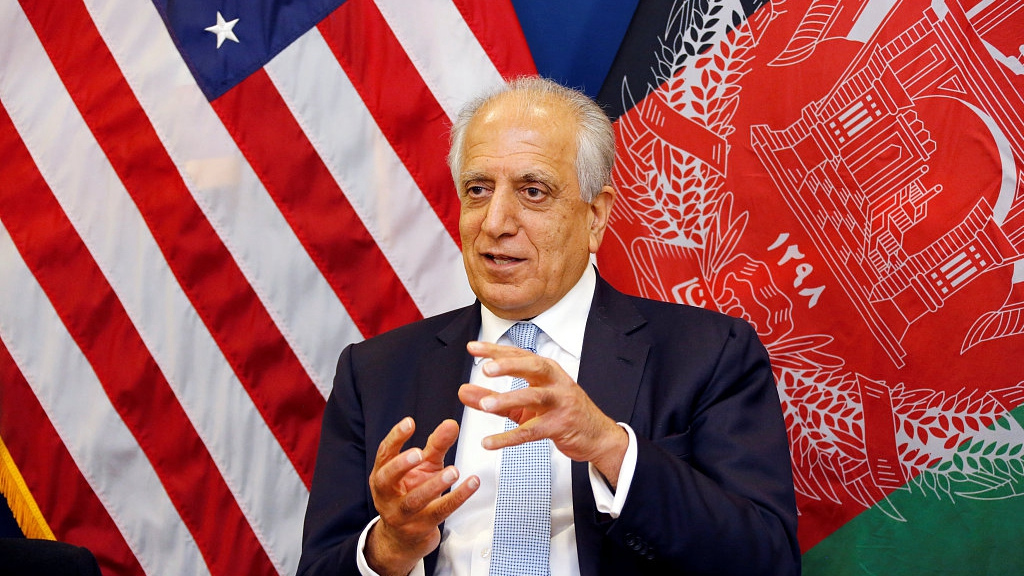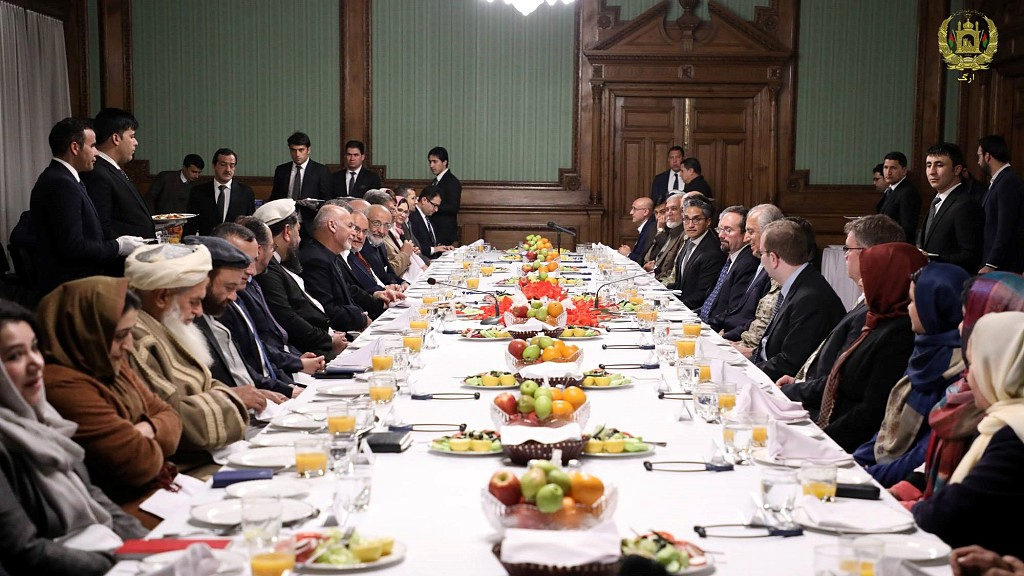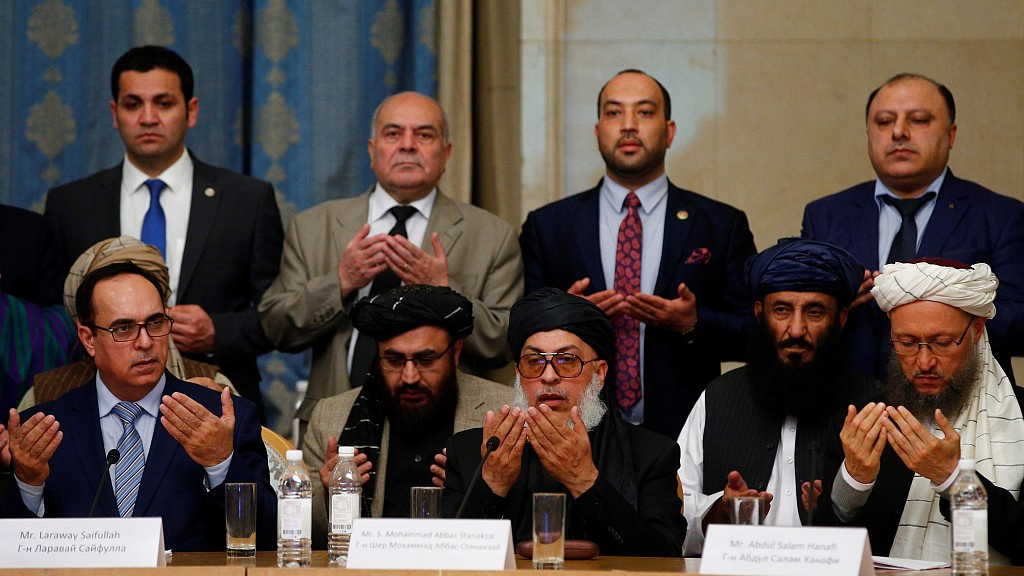
Middle East
21:15, 26-Feb-2019
U.S., Taliban talk troop withdrawal, counter-terrorism at peace talks
CGTN

American and Taliban officials kicked off talks in Doha on Monday with a meet-and-greet lunch, looking to end a 17-year war in Afghanistan. The two sides discussed foreign troop withdrawals and counter-terrorism on Tuesday, officials close to the peace negotiations said.
The first meeting on Monday between U.S. special envoy Zalmay Khalilzad and Taliban's newly-appointed political chief Mullah Abdul Ghani Baradar appeared to be "formal, and yet very cordial," a third source close to the talks said.
Read more:
The two agreed to have "a result-oriented discussion" for the next five days, the source said.
The two sides are looking to hammer out a timeline and logistics for a potential troop withdrawal, as well as guarantees that the Taliban will not host militant groups as the U.S. winds down its presence, sources close to the talks said.
"The Taliban knows foreign forces are committed to withdrawal, but we have the responsibility to ensure that Afghanistan does not get used as a base to launch terror attacks on foreign nations," one of the officials said.
U.S. military officials have been brought in to join this week's talks in Doha, a second official said, raising hopes for progress after the last round in January secured a broad framework agreement but few details on critical aspects of a ceasefire and withdrawal.
"We have all the right people in the room on both sides," the second official said.

Afghan President Ashraf Ghani receives U.S. special envoy to Afghanistan Zalmay Khalilzad at the Presidential Palace in Kabul, Afghanistan, February 18, 2019. /VCG Photo
Afghan President Ashraf Ghani receives U.S. special envoy to Afghanistan Zalmay Khalilzad at the Presidential Palace in Kabul, Afghanistan, February 18, 2019. /VCG Photo
The U.S. team is also pushing for the Taliban to meet with the Afghan government.
Supporters of the Afghan government worry that Washington could negotiate an abrupt pullout in their absence, leaving communities that opposed the Taliban in danger and imperiling reforms such as the education of girls which the Taliban banned.
Hopes have been high for a breakthrough ever since Baradar, a co-founder of the Taliban and the movement's new political chief, was freed from a Pakistani jail last year to participate.
His appointment was widely seen as a fresh effort by the Taliban to emerge from the political and diplomatic shadows.

Head of Political Office of the Taliban Sher Mohammad Abbas Stanakzai (C) prays after the manifesto following the peace talks on Moscow format at the President Hotel in Moscow, Russia, February 6, 2019. /VCG Photo
Head of Political Office of the Taliban Sher Mohammad Abbas Stanakzai (C) prays after the manifesto following the peace talks on Moscow format at the President Hotel in Moscow, Russia, February 6, 2019. /VCG Photo
"Baradar gave the opening address, met with all the U.S. and Qatari officials. He requested his delegation to continue talks. He will be in Qatar, but may not attend all the sessions," the first official said.
The U.S. intervened in Afghanistan in 2001 to help opposition forces topple the Taliban government which had sheltered the al Qaeda militants responsible for the September 11 attacks. Washington and its allies later sent troops to prevent the Taliban from returning in a war that escalated for a decade.
Some 14,000 U.S. troops are based in Afghanistan as part of a U.S.-led NATO mission to train, assist and advise Afghan forces. Some U.S. forces also carry out counter-terrorism operations.
Earlier, Taliban officials and U.S. negotiators agreed on a draft peace pact on January 26 setting out the withdrawal of foreign troops from Afghanistan within 18 months, potentially ending the longest war the U.S. has ever been involved in.
(Cover: U.S. special envoy for peace in Afghanistan, Zalmay Khalilzad, speaks during a roundtable discussion with Afghan media at the U.S. embassy in Kabul, Afghanistan, January 28, 2019. /VCG Photo)
6162km
Source(s): Reuters

SITEMAP
Copyright © 2018 CGTN. Beijing ICP prepared NO.16065310-3
Copyright © 2018 CGTN. Beijing ICP prepared NO.16065310-3